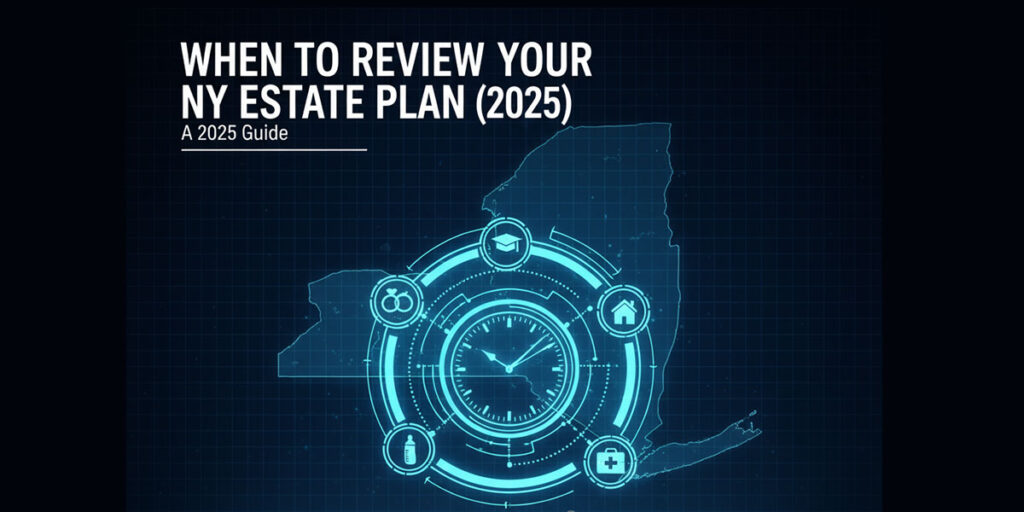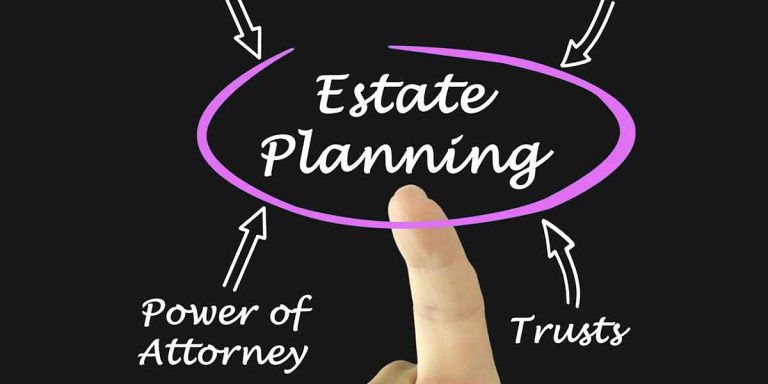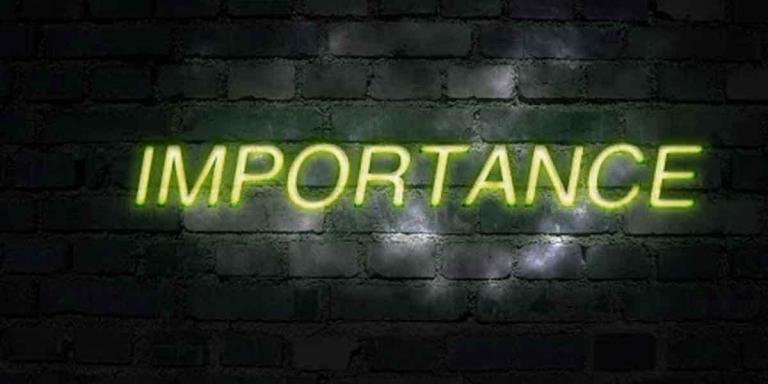Your 2025 Guide to New York Probate, Wills, and Executors
As a New York estate attorney with over 30 years of experience, I have guided thousands of families through the most complex and personal legal challenges of their lives. In all those years, the core concepts of estate planning have remained the same: protecting your family, preserving your assets, and ensuring your wishes are honored. The cornerstones of this process have always been the Last Will and Testament, the role of the Executor, and the court process known as Probate. However, the urgency and strategy surrounding these tools have never been more critical than they are right now, in 2025.
We are on the precipice of a massive, legislated financial change: the 2026 “estate tax cliff.” This event, which will cut the federal estate tax exemption in half, has fundamentally changed the conversation. A simple will that passes through probate is no longer just a “basic” plan; for many families, it is now an outdated and financially dangerous one. Understanding what wills, executors, and probate really mean in the context of 2025 is the first step to protecting your legacy.
This comprehensive guide will answer the most common and urgent questions our clients ask. We will demystify these legal terms, explain how they function under New York law, and, most importantly, show you why a 2025 review of your plan is an absolute necessity. At Morgan Legal Group, we believe knowledge is the foundation of peace of mind.
Section 1: The Last Will and Testament in New York
The Last Will and Testament is the most well-known estate planning document. It is the legal instrument where you articulate your final wishes. However, what it can—and, more importantly, cannot—do is often misunderstood.
What is a Will and What Does it Legally Do?
A will is a legal document that, upon your death, directs the distribution of your assets. Its primary functions under New York law are:
- To Name Your Beneficiaries: You specify who receives what property. This can be in the form of specific bequests (e.g., “I leave $50,000 to my nephew”) or residual bequests (e.g., “I leave all the rest of my estate to my two children, in equal shares”).
- To Appoint an Executor: You nominate a person or institution you trust to be your “Executor.” This individual is responsible for carrying out your will’s instructions and managing the probate process.
- To Nominate a Guardian: This is arguably the most critical function for parents of minor children. Your will is the only place to legally nominate a guardian to raise your children if you and their other parent cannot.
What Are the Legal Requirements for a Valid Will in New York?
New York’s Estates, Powers and Trusts Law (EPTL) is extremely strict about how a will must be executed. If these rules are not followed perfectly, the will can be declared invalid by the Surrogate’s Court. The requirements are:
- Must be in Writing: Oral wills are only valid in very rare, specific circumstances (like for soldiers in wartime).
- Testator’s Signature: You (the “testator”) must sign the document at the very end.
- Witnesses: You must have at least two attesting witnesses.
- The Execution Ceremony: This is where DIY wills fail. You must declare to the witnesses that the document is your will (this is called “publication”). You must sign it in their presence, or acknowledge your signature to them. The witnesses must then sign their names and addresses within 30 days of each other, in your presence.
- Testamentary Capacity: You must be of sound mind and memory (over 18) and understand that you are signing a will that disposes of your property.
A single mistake in this ceremony can invalidate the entire document, forcing your estate into intestacy, as if you had no will at all.
What Happens if I Die Without a Will in New York?
Dying without a valid will is called dying “intestate.” When this happens, New York State law—not you—dictates who inherits your property. The EPTL provides a rigid, one-size-fits-all formula that often leads to results you never would have wanted. This is a common source of heartbreaking family law disputes.
Here is the New York order of intestacy:
- If you have a spouse and no children: Your spouse inherits 100% of your estate.
- If you have a spouse and children: Your spouse inherits the first $50,000 plus one-half (50%) of the remaining balance. Your children inherit the other one-half, divided equally.
- If you have children and no spouse: Your children inherit 100%, divided equally.
- If you have parents and no spouse or children: Your parents inherit 100%.
- If you have siblings and no spouse, children, or parents: Your siblings inherit 100%.
Notice who is not on this list: unmarried partners, stepchildren, close friends, or charities. Without a will, they receive nothing. For a couple in a long-term partnership in Brooklyn or Queens, the surviving partner could be left with no home and no assets.
Why a Simple Will is Often Not Enough in 2025
For decades, a simple will was a perfectly fine plan for most families. In 2025, it is often inadequate. Here’s why:
- A Will Does NOT Avoid Probate: This is the most common misconception. A will is a set of instructions for the probate court. It is the very document that guarantees your estate will go through the public, costly, and time-consuming probate process.
- A Will is a Poor Tool for Tax Planning: A simple will that leaves assets outright to beneficiaries does not utilize any sophisticated tax-saving strategies. With the 2026 tax cliff approaching, relying on a simple will is a form of financial surrender. It does not allow you to “use” your high lifetime exemption before it disappears.
The modern, superior alternative to a will-based plan is a Revocable Living Trust. A trust achieves everything a will does (names beneficiaries, provides for children) but with one massive advantage: it completely avoids probate. We will discuss this in more detail in Section 3.
Section 2: The Executor’s Role in New York
If you write a will, you must name an Executor. This is, without question, one of the most important decisions you will ever make. You are handing this person the keys to your entire financial life, and imposing on them a significant legal and ethical duty.
What is an Executor and What Are Their Legal Duties?
The Executor (or “Executrix” if female) is the person or institution legally responsible for “probating” your will and settling your estate. In New York, this person is a “fiduciary,” which means they are held to the highest legal standard of care. They must act in the best interests of the estate, not themselves. Their specific duties include:
- Petitioning the Surrogate’s Court: Hiring a probate lawyer to file the will and a petition to be formally appointed.
- Marshalling Assets: Locating, securing, and valuing all of your probate assets (bank accounts, real estate, investments, personal property).
- Paying Debts and Expenses: Notifying known creditors, paying valid debts, and paying for funeral expenses and administrative costs.
- Filing Tax Returns: This is a critical one. The Executor is responsible for filing the decedent’s final income tax return and any required estate tax returns (both New York State and Federal).
- Managing Assets: During the probate process, they must prudently manage the estate’s assets.
- Accounting and Distribution: Providing a formal or informal accounting to the beneficiaries and, after court approval or consent, distributing the remaining assets according to the will.
Who Can Be an Executor in New York?
New York law has specific requirements. Your Executor must be:
- At least 18 years old.
- Of sound mind (not “incapacitated”).
- A U.S. citizen. (A non-U.S. citizen can serve, but only if they are a resident of New York State).
- Not a convicted felon.
Importantly, a non-resident of New York can serve as Executor, but the court will require them to post a bond (a type of insurance policy) to protect the estate, which can be an added expense.
How to Choose the Right Executor: Trust vs. Skill
Clients often default to naming their eldest child. This is not always the best choice. A good Executor must be a combination of three things:
- Trustworthy: This is the baseline. It must be someone who will act honestly and transparently.
- Organized and Diligent: The role involves significant paperwork, deadlines, and communication. A person who is disorganized in their own life will be a disastrous Executor.
- Impartial and Resilient: The Executor often has to make tough decisions and communicate with grieving, emotional beneficiaries. They must be able to act as a neutral arbiter and not be easily swayed by family pressure or conflict.
Sometimes, the best choice is not a family member at all. A corporate trustee, a trusted CPA, or an attorney like Russel Morgan can serve as a professional, neutral Executor, which is often a wise choice in high-value estates or those with complex family dynamics.
Can an Executor Be Sued or Removed?
Yes. As a fiduciary, an Executor can be held personally liable for a breach of their duty. If an Executor mismanages assets, steals from the estate, or engages in self-dealing (e.g., selling the estate’s home in Staten Island to themselves for a low price), the beneficiaries can petition the Surrogate’s Court to have them removed and “surcharged” (forced to repay the estate for the financial harm they caused). This is another reason why choosing the right person from the start is so vital.
Section 3: New York Probate Demystified
Probate is one of the most feared words in estate planning. It has a reputation for being an expensive, public, and agonizingly slow nightmare. This reputation is, unfortunately, often deserved. Understanding what it is, and more importantly, how to avoid it, is the key to modern estate planning.
What is Probate, Exactly?
Probate is the formal, court-supervised legal process of: Proving to a court (the “Surrogate’s Court” in New York) that your will is valid. Appointing your Executor to act on your behalf. Giving the Executor the legal authority to collect your assets, pay your debts, and distribute what’s left to your beneficiaries.
When is Probate Required in New York?
Probate is triggered by the type of assets you own. It is required for any asset that is titled in your name alone at the time of your death. These are called “probate assets.”
Examples of Probate Assets:
- A bank account in your name only.
- A house or condo titled in your name only.
- A stock portfolio in your name only.
Probate is not required for “non-probate assets,” which pass automatically to a co-owner or beneficiary. These include:
- Assets in a Trust: This is the big one. Any asset titled in the name of your Revocable Living Trust passes to your trust beneficiaries outside of court.
- Jointly Owned Property: A house or bank account owned “jointly with right of survivorship” (JTWROS) automatically passes to the surviving joint owner.
- Beneficiary Designations: Life insurance policies, IRAs, 401(k)s, and “Pay-on-Death” (POD) accounts pass directly to the person you named on the beneficiary form.
The New York Probate Process: A Step-by-Step Guide
While every estate is different, the process in counties like The Bronx or Westchester generally follows these steps:
- File Petition: The Executor hires a lawyer to file the original will and a “Petition for Probate” with the Surrogate’s Court.
- Notify Heirs: All legal “next of kin” (people who would inherit if there were no will) must be formally notified. This gives them a chance to object.
- Will Contest?: If an heir objects, the process stops and expensive litigation begins. This is where elder abuse or incapacity claims are fought.
- Letters Testamentary: If no one objects, the judge issues “Letters Testamentary,” the formal court order appointing the Executor.
- Inventory and Creditors: The Executor collects assets and notifies creditors. Creditors have 7 months to file a claim.
- Taxes: The Executor files all necessary income and estate tax returns.
- Accounting and Closing: The Executor prepares a final accounting, which is sent to all beneficiaries for approval.
- Distribution: Once approved, the Executor finally distributes the assets and closes the estate.
How Long Does Probate Take and How Much Does it Cost?
This is the key question. In New York, a simple, uncontested probate can take 9 to 18 months. If there is a will contest or any complication (like a hard-to-sell business), it can drag on for years. During this entire time, the assets are frozen, and the family has limited access.
The cost is also significant. Legal fees for probate in New York are typically billed hourly, but many people estimate them as a percentage of the estate. It is common for total administrative costs (legal fees, court fees, executor commissions) to consume 3% to 7% of the estate’s value. For a $1 million estate, that could be $30,000 to $70,000, all of which could have been avoided.
Section 4: The 2025/2026 Mandate: How This All Fits Together
Now, let’s tie this all together. Why is 2025 the year to be thinking about wills, probate, and executors? Because the 2026 tax cliff has turned these concepts from a simple legal matter into an urgent financial one.
Your Will, Probate, and the Tax Cliff
As we’ve established, the federal estate tax exemption will be cut in half in 2026. A family with an $10 million estate, who is tax-free today, will suddenly owe a 40% tax on approximately $3 million of their estate if they pass away in 2026 without planning.
A simple will that goes through probate does nothing to solve this problem. In fact, it makes it worse. The public probate process inventories all your assets, creating a clear roadmap for the IRS. The will simply distributes what’s left after the tax man takes his 40%.
The solution is to move beyond a will-based plan. This is where comprehensive estate planning comes in:
- Good: A Will. It’s better than nothing. It directs your assets and names a guardian. But it guarantees probate and does nothing for tax planning.
- Better: A Revocable Living Trust. This is the modern standard. It achieves everything a will does, but it completely avoids probate, saving your family time, money, and privacy. It is also a much stronger vehicle for incapacity planning (as your “Successor Trustee” can take over without court, unlike a Power of Attorney, which can be contested).
- Best for 2025: A Trust-Based Plan with Tax Planning. This is the mandate. By scheduling a consultation in 2025, you can use strategies like a Spousal Lifetime Access Trust (SLAT) to make a large gift now, using your high $13.61 million exemption before it disappears. This permanently moves assets out of your taxable estate, saving your family millions. This advanced plan also avoids probate.
Choosing an Executor for a Taxable Estate
If your estate is, or will be, taxable, your choice of Executor becomes even more important. This person isn’t just managing bills; they are managing a multi-million dollar tax event. They will be responsible for hiring appraisers, making complex tax elections, and filing the 70-page federal estate tax return (Form 706). Choosing a child who is a teacher or a musician, while a loving gesture, may be a terrible disservice. This is a scenario where a professional, like an experienced attorney or trust company, is almost always the correct choice.
Conclusion: From Knowledge to Action in 2025
Understanding the roles of a will, an executor, and the probate process is a vital first step. But in 2025, knowledge alone is not enough. The law is creating a non-negotiable deadline that requires action.
Relying on an old will is a gamble. Dying without a will is a catastrophe. Going through probate is an unnecessary and costly burden on your family. And failing to plan for the 2026 tax cliff is a voluntary decision to pay millions in avoidable taxes. A modern, trust-based estate plan, crafted by an experienced New York attorney, solves all of these problems. It avoids probate, protects your family, and implements strategies to secure your legacy from the coming tax changes. Do not wait for 2026. We invite you to get in touch with Morgan Legal Group today for a comprehensive review of your plan.







